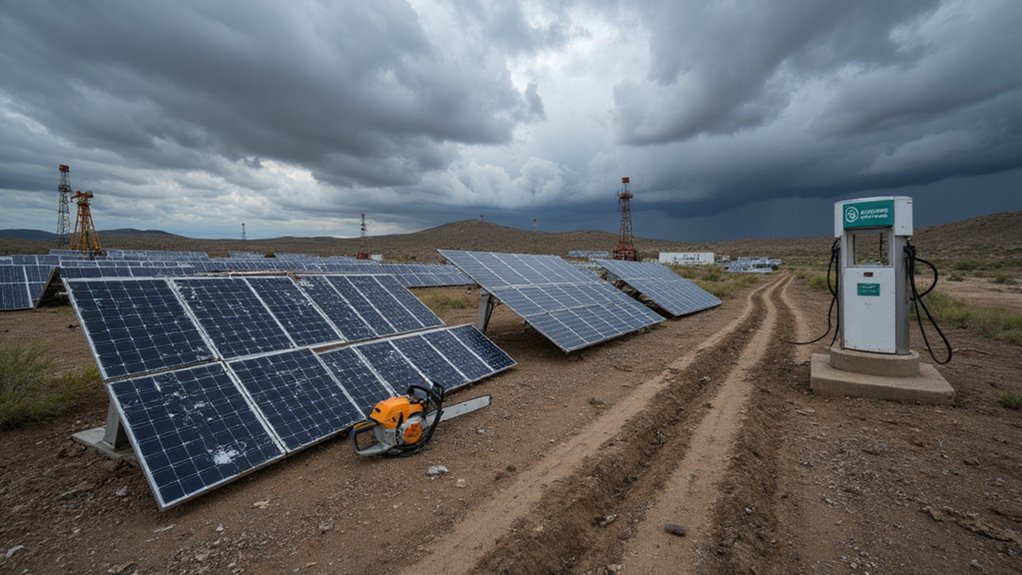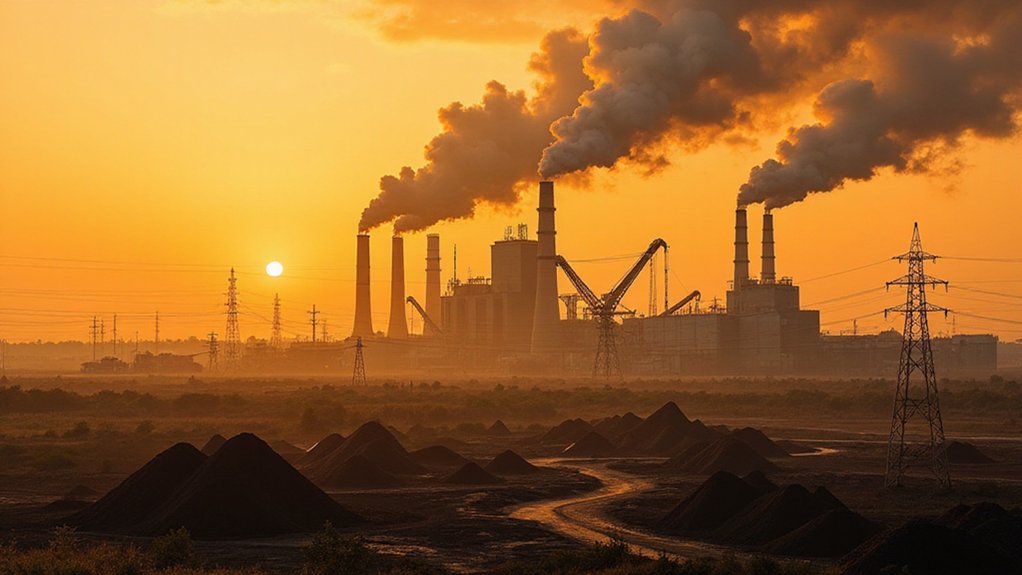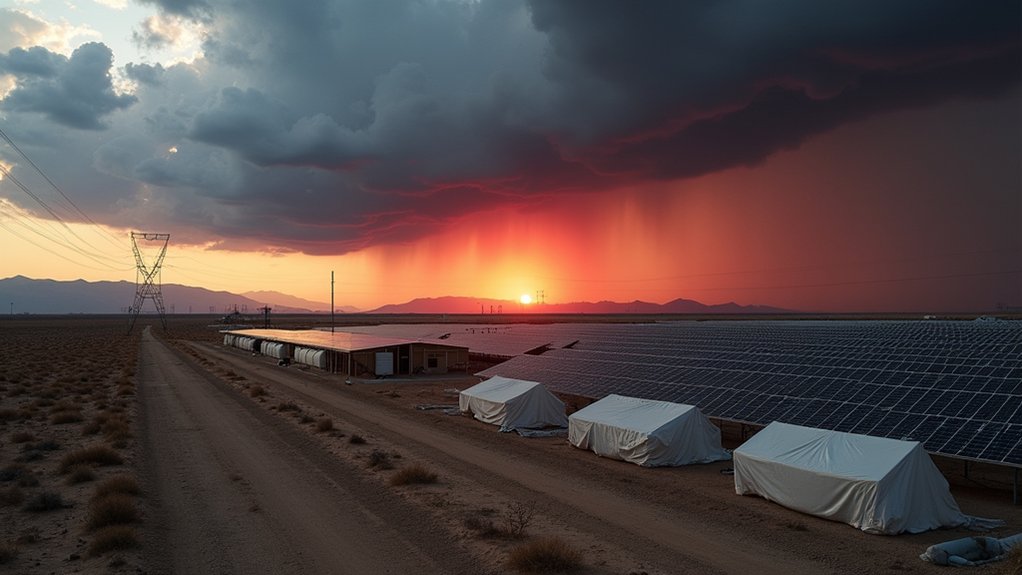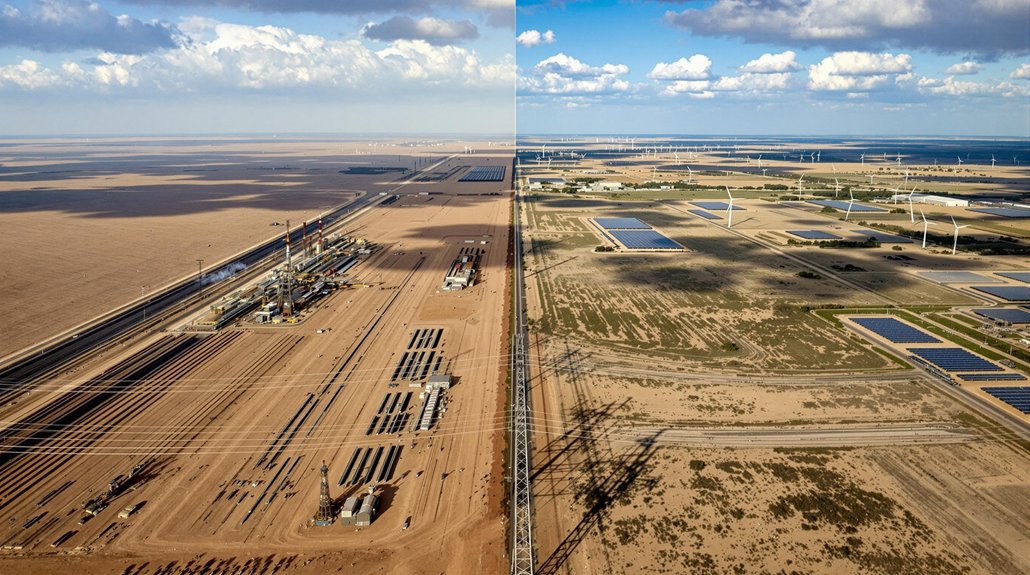While the nation grapples with climate concerns, the Trump administration has doubled down on fossil fuels in a massive energy policy overhaul that’s turning heads—and raising eyebrows. A flurry of executive orders has created a fossil fuel renaissance on paper, bulldozing regulatory barriers for oil, gas, coal, and nuclear while the rest of the world shifts toward renewables. Funny how that works.
The administration’s approach is crystal clear: drill more, build faster, ask questions later. Federal agencies have been transformed into express lanes for fossil fuel project approvals. Meanwhile, wind and solar? Not so lucky. Executive orders have slashed tax credits for renewable projects and even paused approvals for offshore wind development. Because nothing says “energy dominance” like fighting yesterday’s energy battles.
The deregulation push doesn’t stop at the federal level. Trump’s policies actively target state climate initiatives, labeling them as “burdensome” and “ideologically motivated.” States trying to hold fossil fuel companies accountable for emissions? The federal government has a message: back off. It’s federal supremacy with a side of preemption.
Public opinion tells a different story. Only 33% of Americans support increased drilling, with a stark partisan divide—57% of Republicans favor more drilling compared to just 9% of Democrats. Young Republicans aren’t even fully on board with the fossil fuel bonanza. Awkward.
The administration has stacked energy positions with industry insiders while dismissing climate concerns as irrelevant. It’s a bold strategy when most Americans are increasingly worried about climate impacts they can see with their own eyes. The reinstatement of the National Coal Council signals a return to coal-industry dominance in shaping federal energy policy. The EPA’s proposal to eliminate the Endangerment Finding threatens the legal foundation for regulating greenhouse gas emissions.
This energy gamble might rally the base, but it’s fighting against market forces and public sentiment. Renewable energy keeps getting cheaper. Extreme weather keeps getting worse. And Americans increasingly want solutions, not ideology. This approach stands in stark contrast to tech giants like Google and Microsoft who are investing heavily in nuclear power as a carbon-free energy solution. The question isn’t whether America will convert to cleaner energy—it’s whether this administration will be remembered for helping or hindering the inevitable.
References
- https://www.mvalaw.com/news-12056
- https://www.actonclimate.com/trumptracker/
- https://www.whitehouse.gov/presidential-actions/2025/04/protecting-american-energy-from-state-overreach/
- https://www.whitehouse.gov/presidential-actions/2025/01/unleashing-american-energy/
- https://www.pewresearch.org/science/2025/06/05/views-on-trump-administration-energy-policies-and-priorities/








